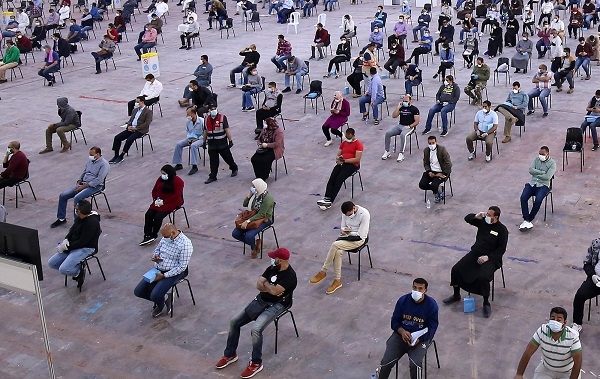Picturing life after lockdown!
Total Views |
-Mayur Didolkar
At some point in not too distant a future, the lockdown will be over and we would begin the long road back to normalcy. But one thing is certain- life will never be the same again. As conscientious and responsible citizens of India and the world, it devolves upon each one of us to reflect on the lockdown and re-imagine life after corona, if not for the world at large, then certainly for ourselves.
To begin with, can we all just agree that we owe our very survival to the heroism of thousands upon thousands of doctors and healthcare workers who stood like a rock between India and absolute catastrophe? They did it with faulty or no equipment, they did it wearing suffocating PPE suits in 40 degrees heat, they did it ignoring hunger and thirst and withholding bodily functions while attending to the sick amongst us with no care towards their personal safety. These warriors were pelted with stones and spat upon, and yet returned to provide care to the same people who stoned and spat on them. They did this while a scared and misinformed society denied them accommodation and even a final resting place. And yet these heroic men and women never wavered, never gave an inch. To paraphrase Churchill, it is rare that so many owed so much to so few.

However, acknowledging the selfless sacrifices of our healthcare community will be reduced to lip service in absence of follow-up action. A strong society creates environment conducive for the heroic temper, and if we need more such heroes in future, it is a future we need to start investing from the day this lockdown ends. Is it possible to bring down the costs for a medical degree and post-graduate education by 25 %? By half? What we as a society will have to give up, so students from poor families can support themselves for the decade and a half long cycle of medical studies? Can we offer a differential income tax rate to practicing medical professionals in acknowledgement of the criticality of their work? Considering the heinous attacks on them during this crisis, is it possible for us to create an auxiliary security force, comprising of able- bodied civilians, and deploy them to protect our healthcare workforce during times of crisis? What are the critical issues in the inventory or supply chain management that require our urgent attention? These are complex issues needing multi-discipline expertise, but as a society we need to ask our policymakers that these need to be addressed urgently during peace time so we can support our heroes with something more substantial than mere gratitude.
If the healthcare workforce has been the frontline soldiers, then the numerous Kirana stores spread across India, and the millions of men and women working in them, were the intrepid supply line soldiers. During last five weeks these faceless, barely literate and completely unprotected men and women have ensured our fight against corona wasn’t lost because of empty stomachs. Faced with a crisis on an unprecedented scale, the Indian shopkeeper showed resourcefulness and ingenuity to keep the essentials stocked, complied with constantly changing government rules, and exposed himself and his staff to risks of infection in order to keep us functional. They did it without insurance and healthcare benefits, they did if without jacking up prices (for most parts), and they did it with a low-key everyday heroism that would not fail to move us once we stop to think about it.
My friend Sanjeev Sanyal has described this community part of India’s social capital. We must invest into this social capital to nurture it further. For consumers, this investment can be as simple as not chasing a special 2 for 1 offer on soaps in the supermarket. For our policymakers, it means protecting their business from large, multinational, venture fund funded chains. We need to celebrate the uniquely Indian model of small shop ownership and protect it from destruction for the sake of economies of scale. Lastly, the biggest learning, at least for me, has been the meaningless nature of information overload that we all plug-in to every day, thanks to social media. Look at the last five weeks and tell me honestly- how did monitoring the patient numbers/trends in deaths and recoveries and endless debates about testing helped you cope better? Your work, unless you were a part of one of the emergency services or law enforcement or policymaking, was staying indoors and maintaining distance whenever you went out. At best, the constant flow of information gave you an illusion of having control.
In reality, it is far likelier that constant exposure to the panic porn at worst, it made you irritable, frustrated and difficult to live with. Worse still, the constant flow of negative information, in most cases, served to enforce political biases and partisanships and further intensified the polarization. The other, and equally unpleasant consequence of the same has been that while most of us were singularly well informed about the number of hospitalizations in New York, we remained apathetic to the needs in our own backyard. At one point, I used to think it ironical that people most active in work on the ground, were very often barely present on social media. Now I think the relationship between the two is that of because of rather than in spite of.
A crisis like this is often seen as a warning given by nature to the mankind. Is it possible that a crisis where all of us were forced to stay indoors and connected only to our own, is nature’s way of asking us to put the virtual connectedness offered by social media into perspective and replace it with real, human touch?

